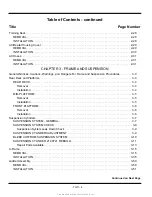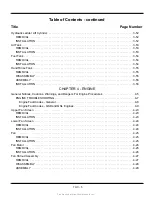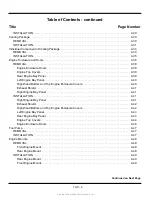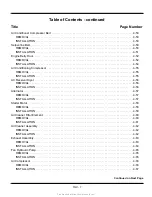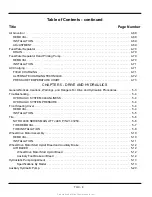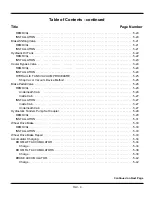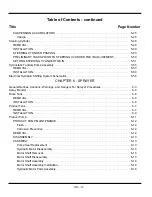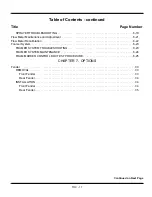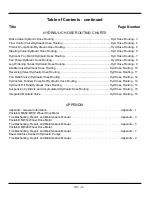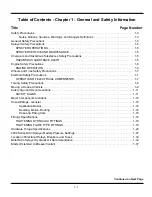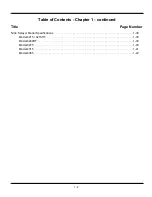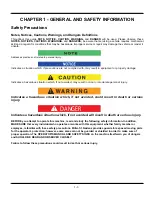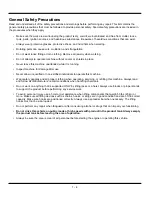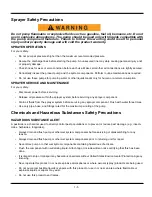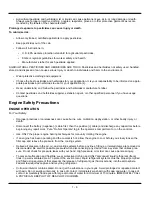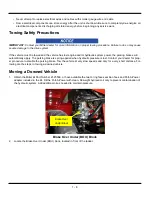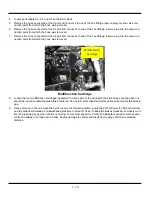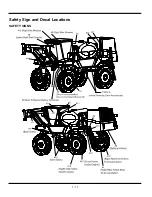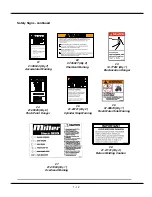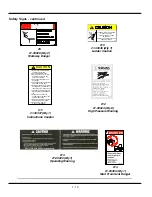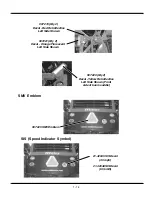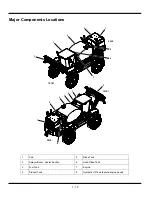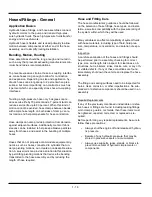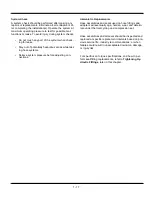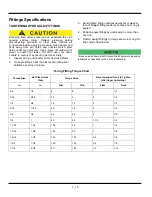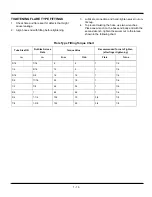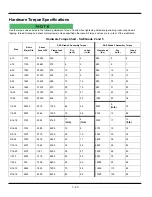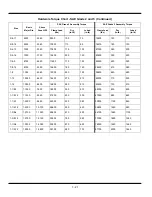
1 - 6
•
Agricultural pesticide and herbicide mist or liquid can cause permanent eye, skin, or lung damage or death.
Always wear proper protective clothing, goggles, respirator, gloves, or other protective garments as recom-
mended by the labels of the chemicals used.
Prolonged exposure to pesticides can cause injury or death.
To minimize risk:
•
Allow only trained, certified applicators to apply pesticides.
•
Keep pesticides out of the cab.
•
Follow all instructions in:
•
U.S. EPA workers protection standard for agricultural pesticides.
•
State or regional guidelines for worker safety and health.
•
Manufacturer’s label for each pesticide applied.
AGRICULTURAL PESTICIDES AND HERBICIDES ARE TOXIC. Pesticides and herbicides not safely used, handled,
stored, and disposed of can cause serious injury or death to individuals and harm to the environment.
•
Wear protective clothing and equipment.
•
Choose the best pesticides and herbicides for your application. It is your responsibility to be informed on appro-
priate pesticides and herbicides to use for your application(s).
•
Read, understand, and follow the pesticides and herbicides manufacturer’s label.
•
Contact pesticides and herbicides supplier, extension agent, or other qualified personnel if you have usage
questions.
Engine Safety Precautions
ENGINE OPERATION
For Your Safety:
•
I
mproper practices or carelessness can cause burns, cuts, mutilation, asphyxiation, or other bodily injury or
death.
•
Disconnect the battery (negative [-] cable first, then the positive [+] cable) and discharge any capacitors before
beginning any repair work. Put a “Do Not Operate” tag in the operator’s compartment or on the controls.
•
Use ONLY the proper engine barring techniques for manually rotating the engine.
•
If an engine has been operating and the coolant is hot, allow the engine to cool before you slowly loosen the
filler cap and relieve the pressure from the cooling system.
•
Relieve all pressure in the air, oil, and cooling systems before any lines, fittings, or related items are removed or
disconnected. Be alert for possible pressure when disconnecting any device from a system that utilizes pres-
sure. Do not check for pressure leaks with your hand. High pressure oil or fuel can cause personal injury.
•
To prevent suffocation and frostbite, wear protective clothing and ONLY disconnect liquid refrigerant (freon)
lines in a well-ventilated area. To protect the environment, liquid refrigerant systems must be properly emptied
and filled using equipment that prevents the release of refrigerant gas (fluorocarbons) into the atmosphere.
Federal law requires capture and recycling refrigerant.
•
Corrosion inhibitor contains alkali. Do not get the substance in your eyes. Avoid prolonged or repeated contact
with skin. Do not swallow internally. In case of contact, immediately wash skin with soap and water. In case of
contact, immediately flood eyes with large amounts of water for a minimum of 15 minutes. IMMEDIATELY CALL
A PHYSICIAN. KEEP OUT OF REACH OF CHILDREN.

